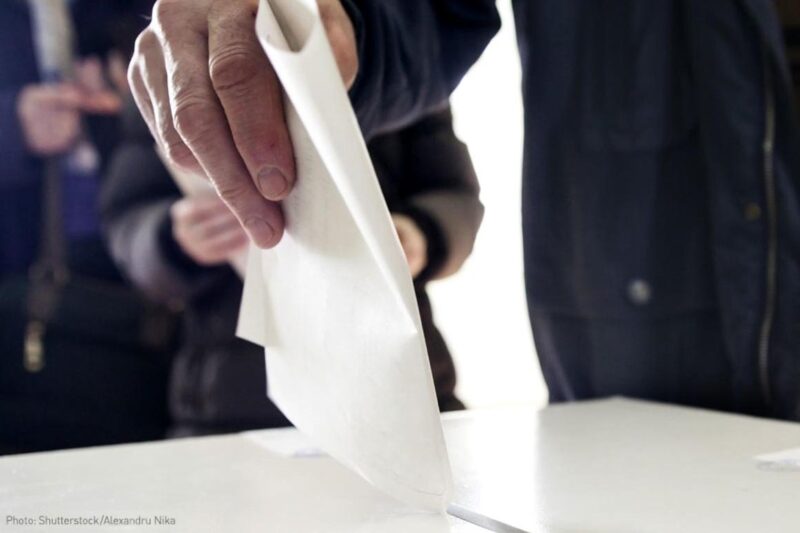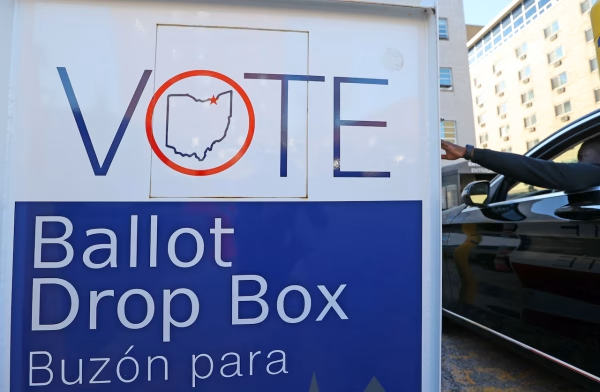
In 2016, 10 states will be putting into place restrictive voting laws that they will be enforcing for the first time in a presidential election. These laws range from new hurdles to registration to cutbacks on early voting to strict voter identification requirements. Collectively, these ten states are home to over 80 million people and will wield 129 of the 270 electoral votes necessary to win the presidency.
The ACLU has been fighting to ensure that all Americans have access to the polls. We have been on the ground in half of these 10 states:
- In Wisconsin, we are challenging the state’s strict voter ID law on behalf of homeless veterans and others who lack ID. Wisconsin’s voter ID law does not accept U.S. Veterans Administration ID cards, a slap in the faces of the brave men and women who have served our country. We are headed to the U.S. Court of Appeals for the Seventh Circuit this spring, demanding that veterans not be disenfranchised. The solution is a simple one: voters who lack ID should be able to identify themselves through a signed affidavit under penalty of perjury – which is how voters without ID are accommodated in several other states that have voter ID laws (like North Carolina and South Carolina).
- In North Carolina, a preliminary injunction restoring same-day registration — which 90,000 people used in the 2012 election — remains in place thanks to litigation in 2014. But we are also challenging other aspects of North Carolina’s monster voter suppression bill, including the elimination of early voting days on which almost 900,000 North Carolinians cast their ballots in the last presidential election. To put things in perspective, that figure is more than five times the margin of victory in that election. We took this case to trial in federal court last summer and are awaiting a decision.
- In Kansas, we are challenging the state’s bizarre dual-registration system, in which people who register to vote using the federal voter registration form will only be allowed to vote for federal offices (like president), but not for state offices (like governor). We have filed a motion to have that system declared unlawful and are awaiting a ruling from the trial court.
UPDATE: On January 15, 2016, a court declared that the dual registration system violates Kansas law, and that voters who used the Federal Form must be registered for all elections.
- In Texas, various groups are challenging the state’s voter ID law. The law is purportedly necessary to prevent voter fraud. Suspiciously, though, Texas does not accept University of Texas student ID cards (which are issued by the state itself), but it does accept concealed weapons permits. Over 600,000 Texas voters are estimated not to have one of the required forms of ID. When the case was heard last year before a three-judge panel of the U.S. Court of Appeals for the Fifth Circuit, the ACLU filed a friend-of-the court brief urging that the law be struck down — and the court agreed. The parties are currently waiting to hear whether the case will be heard again by the full Fifth Circuit Court of Appeals, or whether the law will be modified to accommodate voters without ID.
- In Ohio, we filed a lawsuit in 2014 challenging early voting cutbacks and received a favorable ruling from the U.S. Court of Appeals for the Sixth Circuit. After the Supreme Court unfortunately stepped in and allowed the early voting cutbacks to proceed for the 2014 election, we continued to litigate the case and ultimately settled it, restoring weekend and evening early voting opportunities for hundreds of thousands of Ohioans. But recently, we caught word that the state is unlawfully purging voters from the rolls, so on December 17, the ACLU of Ohio and Demos sent a letter to the Ohio secretary of state indicating that they intend to initiate litigation within 90 days if this unlawful purge is not discontinued.
What all this activity shows is that the wave of voter suppression efforts that swept across the country in the wake of the Supreme Court’s 2013 decision eliminating a core provision of the Voting Rights Act, Shelby County v. Holder, has continued. In fact, in 2015, voter ID laws were proposed in half a dozen states: Nebraska, Nevada, New Mexico, North Dakota, Ohio, and West Virginia. But five of those bills failed; only North Dakota’s became law.
It feels like the tide is turning, but as the 2016 election draws closer, we expect that politicians will be tempted to engage in yet more efforts to manipulate the democratic process — to try to choose the voters instead of letting the voters choose them.
What does this look like? Check out our map


